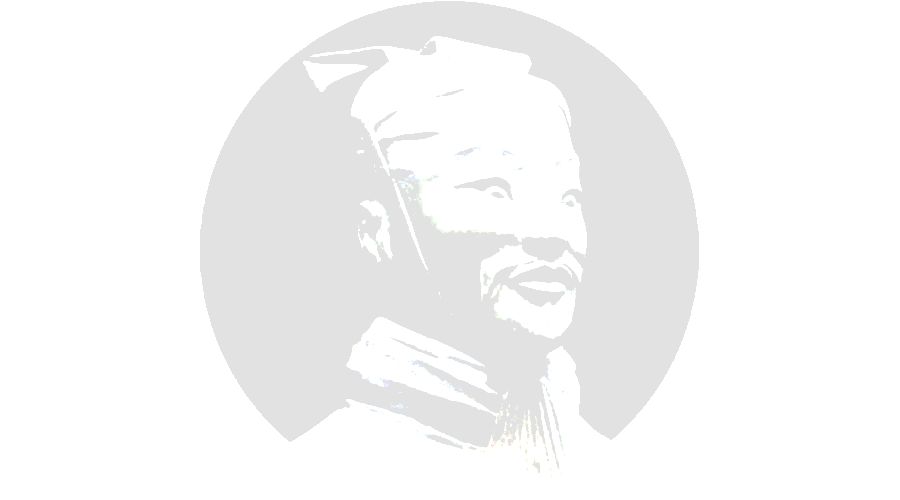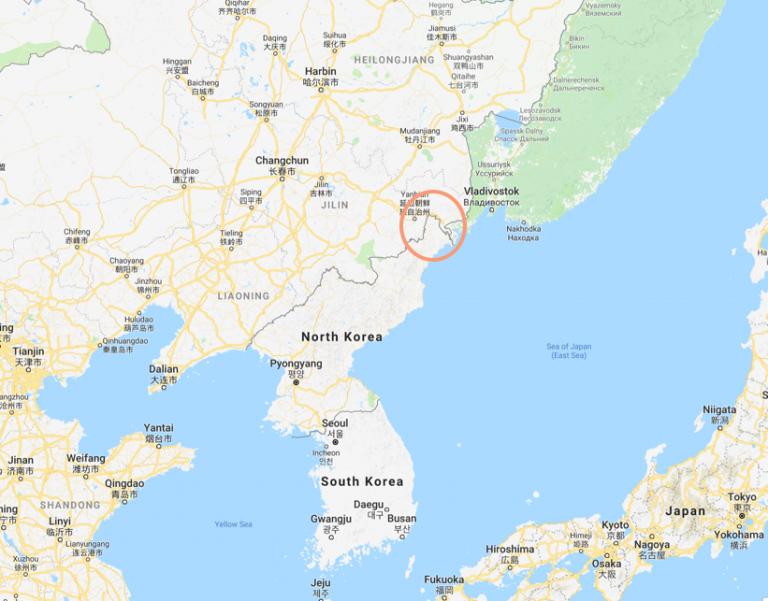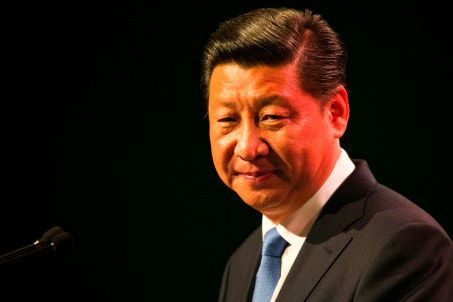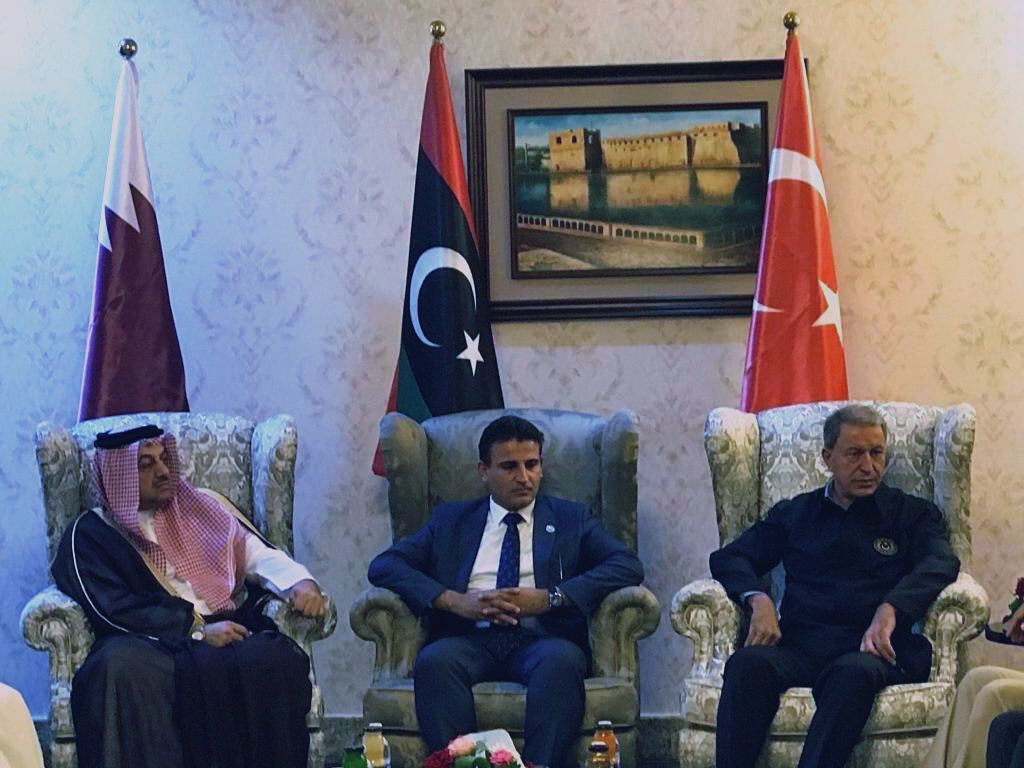Prince Harry in surprise visit to Ukraine to meet war victims
#1 According to President Trump, the U.S. Navy shot down an Iranian drone over the Strait of Hormuz. The following comes from NBC News… President Donald Trump on Thursday said that a U.S. Navy ship “destroyed” an Iranian drone over the Strait of Hormuz — the latest in a series of tense incidents between Washington and Tehran. Trump told reporters at the White House on Thursday that the USS Boxer — a U.S. Navy amphibious assault ship — “took defensive action” against the Iranian drone that had “closed into a very, very near distance, approximately 1,000 yards.” The drone was “threatening safety of the ship and the ship’s crew” and “was immediately destroyed,” he said. #2 The Iranians denied that it was their drone. So either the Iranians are lying (which is a very real possibility), or someone else may be trying to start a war between our two nations. When asked about the drone, Iranian Foreign Minister Mohammad Javad Zarif seemed to indicate that the drone which was shot down did not belong to them… “We have no information about losing a drone today,” Zarif told reporters at the United Nations before a meeting with Secretary-General Antonio Guterres. #3 But the Iranians have admitted that they have seized a Panamanian-flagged, UAE-based oil tanker. According to Iran, the tanker was seized because it was illegally smuggling Iranian oil “to foreign customers”… The tanker was seized by Revolutionary Guard forces on July 14 after getting intercepted south of Iran’s Larak Island in the strategic Strait of Hormuz amid allegations that the tanker was smuggling fuel from Iranian smugglers to foreign customers. It remains unclear to which country or company the tanker belongs but a tanker based in the United Arab Emirates disappeared earlier this week. #4 The U.S. State Department has condemned Iran for seizing the tanker, and U.S. officials are demanding that they immediately release it… In a statement, a State Department spokesperson said the U.S. “strongly condemns the Islamic Revolutionary Guard Corps Navy’s continued harassment of vessels and interference with safe passage in and around the Strait of Hormuz.” “Iran must cease this illicit activity and release the reportedly seized crew and vessel immediately. We will continue to work closely with our allies and partners to ensure the Iranian regime’s extortion tactics and malign activities do not further disrupt maritime security and global commerce,” the spokesperson said. #5 It has been announced that the U.S. is deploying 500 troops to Prince Sultan Air Base in Saudi Arabia. As tensions with Iran continue to rise, the number of troops being staged at this base is likely to increase dramatically. The following comes from CNN… Five-hundred troops are expected to go to the Prince Sultan Air Base, located in a desert area east of the Saudi capital of Riyadh, according to US two defense officials. A small number of troops and support personnel are already on site with initial preparations being made for a Patriot missile defense battery as well as runway and airfield improvements, the officials said. The US has wanted to base troops there for some time because security assessments have shown Iranian missiles would have a difficult time targeting the remote area. I don’t know who is doing those “security assessments”, because the truth is that Iranian missiles can easily reach that base. For a while there it seemed like things had cooled off a bit in the Middle East, and many were hoping that the threat of an imminent conflict had been averted. Unfortunately, things are now more tense than ever, and a single mistake could set off a chain of events that nobody is going to be able to stop. On Thursday, Iran’s foreign minister made the following very ominous statement… “We live in a very dangerous environment,” the Iranian foreign minister, Javad Zarif, said Thursday at the United Nations before news of the drone was made public. “The United States has pushed itself and the rest of the world into probably the brink of an abyss.” And once we plunge into that abyss, there is no turning back. Of course most ordinary Americans aren’t really thinking about Iran at all. They are just busy working hard, raising their kids and trying to build their lives. Perhaps they have heard a little bit about tensions with Iran on the news, but most of them have absolutely no idea that we could literally be on the verge of an apocalyptic war in the Middle East. If a full-blow war with Iran erupts, events are going to start escalating very rapidly and it will set the stage for many of the nightmare scenarios that I have been relentlessly warning about. A lot of the talking heads on television seem to think that “the worst case scenario” would be having the U.S. dragged into another endless “quagmire” like we witnessed in Afghanistan and Iraq. No, that is definitely not the worst case scenario. The Iranians have been preparing for this conflict for decades, and they would hit us with everything that they have got. In order to defeat them quickly, we would have to go beyond just using conventional weapons, and that is somewhere that we do not want to go.
WORLD WIDE PEACE AND LOVE OR WAR
22 hours ago
.Russian President Vladimir Putin (C) stands with military personnel during a flower laying ceremony marking …
SOCHI, Russia (Reuters) - Russian President Vladimir Putin on Monday replaced a former businessman with a military general as his envoy to the North Caucasus region, signaling a more hawkish approach to battling an Islamist insurgency there.
As part of a reshuffle that appeared to be aimed to tighten control over the volatile North Caucasus, Putin also created a new government ministry to oversee the heavily Muslim region on Russia's southern border.
Putin named General Sergei Melikov, who had headed the interior ministry troops in the North Caucasus, as his envoy to the region, and appointed Lev Kuznetsov as minister of North Caucasus affairs.
"We are creating a new body: a ministry for North Caucasus affairs, for the development of the North Caucasus," Putin told Kuznetsov, who until now was governor of the Krasnoyarsk region in Siberia, in a televised meeting.
Throughout the 14 years since Putin rose to power and crushed a Chechen separatist revolt, Russia has battled an insurgency seeking to carve an Islamic state out of the provinces of Chechnya, Ingushetia and Dagestan.
Kuznetsov formerly served as an advisor to the Kremlin's former envoy to the North Caucasus, Alexander Khloponin.
Experts say the changes are an acknowledgment by the Kremlin of the scale of the problems it faces in a region where officials say the ranks of fighters are filled by youths disillusioned over corruption and joblessness.
"Khloponin alone could not handle such a complex economy, so an additional management vertical has been created," Alexei Mukhin, the head of the independent Russian think-tank Centre for Political Technologies, told the Ekho Moskvy radio.
Khloponin's own appointment by then-President Dmitry Medvedev in 2010 signaled a shift from a Kremlin policy that had focused mainly on force to combat the insurgency to one that hoped to fight poverty and violence in the region including by promoting economic development.
Some experts saw this and the replacement of Khloponin, a former businessmen who spearheaded multi-billion dollar state investment in the region, as a sign Putin has turned his back on dialogue with moderate but non-establishment Muslim clerics and other policies to ease the conflict by means other than force.
Melikov has been in charge of the interior ministry troops who are the most active security forces involved in counter-insurgency operations in the North Caucasus.
"I fear that the task of the envoy will fundamentally change now and it will be a body that only answers to security issues," said Varvara Pakhomenko, a Moscow-based researcher with think-tank the International Crisis Group.
-Pacific, Energy, Global Geopolitics, Global Governance, Headlines, North America, Nuclear Energy - Nuclear Weapons,TerraViva Europe, TerraViva United Nations, United Nations, WorldAnalysis by Gareth Porter
Reprint | | Print | Send by email
WASHINGTON, Mar 31 2014 (IPS) - The Barack Obama administration appears to have rejected a deal-breaking demand by Israel for an Iranian confession to having had a covert nuclear weapons programme as a condition for completing the comprehensive nuclear agreement.
Pro-Israeli commentators have openly criticised the Obama administration for failing to explicitly demand that Iran confess to charges by the International Atomic Energy Agency (IAEA) of a covert nuclear weapons programme.
All the intelligence in question can be traced back to Israel, and investigation of it has shown that the documents and reports that have been most widely publicised betray multiple indications of having been fabricated.
Demanding such a confession would be an obvious deal-breaker, because Iran has consistently denied those past charges and denounced the documents and intelligence reports on which they were based as fraudulent. In fact, the failure of the talks appears to be precisely the Israeli intention in pressing Washington to make that demand.
All the intelligence in question can be traced back to Israel, and investigation of it has shown that the documents and reports that have been most widely publicised betray multiple indications of having been fabricated, as reported by IPS.
A “senior administration official” told reporters after the Nov. 24 Joint Plan of Action was announced that the United States had “made clear” in the negotiations that “the Security Council resolutions must still be addressed…and that Iran must come come into compliance with its obligations under the NPT and its obligations to the IAEA.”
The U.N. Security Council Resolution 1929 of Jun. 9, 2010 says Iran “shall cooperate with the IAEA on all outstanding issues, particularly those which give rise to concerns about the possible military dimensions of the Iranian nuclear programme….”
The term “possible military dimensions” had been used by the IAEA in referring to the claims publicised by the agency over the past six years of covert Iranian nuclear weapons development projects, including an alleged facility at Parchin for testing nuclear weapons designs.
The administration thus seemed to suggest that some kind of Iranian admission to past nuclear weapons work is a condition for a final agreement.
But the Obama administration’s rhetoric on resolving IAEA claims of a nuclear weapons programme appears to be less about forcing Iran to confess than responding to pressures from Israel and its supporters in the United States.
The first explicit indication of Israeli pressure on Obama to demand an Iranian confession as part of any diplomatic settlement came in a September 2012 article by Patrick Clawson and David Makovsky, then both senior staff members of the Washington Institute for Near East Policy (WINEP), whose analysis and recommendations reflect Israeli government policy.
“Given Iran’s past undeclared activities,” Clawson and Makovsky wrote, “a particular concern is that Iran will develop clandestine nuclear facilities. Tehran’s coming clean about the past will therefore be an important determinant of whether it has any hidden capabilities.”
The demand that Iran “come clean” on its alleged nuclear weapons program entered into the Obama administration’s public posture for the first time after consultations with Israel in advance of the October 2013 round of negotiations with Iran.
The new Iran-IAEA agreement on the EBW issue raises the question of whether IAEA Director General Yukiya Amano is now ready to reach a deal with Iran, despite having staked his own reputation on the November 2011 report on intelligence claims of covert Iranian nuclear weapons research coming from Israel. Credit: International Students’ Committee/cc by 3.0
Secretary of State John Kerry declared in Tokyo Oct. 3 that Iran would “have to prove it’s willing to come clean about the nuclear programme”.
That same day, Ambassador James Jeffrey, a senior fellow at WINEP, in testimony before the Senate Foreign Relations Committee, said Iran “must come clean on its nuclear-related military research”.
By the time the negotiations on the joint Plan of Action were completed in November, however, the State Department adopted language on the issue that harkened back to Kerry’s testimony at his Senate confirmation hearings in January 2013. Kerry had said then that “questions surrounding Iran’s nuclear weapons programme” had to be “resolved”.
It quickly became apparent that Israel had wanted the United States to demand not only a pro forma confession by Iran but the details of its alleged work on nuclear weapons. On the very day the agreement was announced, however, Robert Satloff, the executive director of WINEP, expressed his unhappiness that the deal did not include “getting Iran to come clean on all its past clandestine programmes….”
Also on Nov. 24, Mark Dubowitz and Orde Kittrie of the Foundation for the Defense of Democracies, which is well known for expressing Israeli policy on Iran, criticised the Joint Plan of Action in the Wall Street Journal for failing to “make clear reference to Iran revealing its past nuclear weapons research.”
The following day WINEP managing director Michael Singh complained in the Wall Street Journal objected again to the same U.S. failure to demand all the details of Iranian work on nuclear weapons. “Without insight into the full extent of Iran’s clandestine nuclear activities,” Singh wrote, “no amount of monitoring and inspection can provide confidence that Iran lacks a parallel programme beyond the inspectors’ view.”
Along with Kerry’s initial adoption of the “come clean” rhetoric, these sharp criticisms of the U.S. refusal to call explicitly for a confession indicate that the Obama administration had initially went along with Israel’s in calling for Iran to “come clean”, but concluded that such a demand risked a premature breakdown in the talks.
Since the interim agreement, moreover, the State Department has avoided language that would commit it to requiring anything resembling an Iranian confession. In Israel Feb. 22, Undersecretary of State Wendy Sherman, who is the primary negotiator with Iran, said, “What we have said to Iran is that [the 'possible military dimensions' issue] will have to be addressed in some way.”
Sherman suggested for the first time the possibility of a less than complete and clear-cut outcome of the process. The IAEA was “very much focused on working through PMD with Iran,” said Sherman. “And the more Iran can do with the IAEA, which is where this belongs, the more likely we will have successful comprehensive agreement.”
Related IPS Articles- Resolving Nuclear Arms Claims Hinges on Iran’s Demand for Documents
- Iran Laptop Papers Showed the Wrong Missile Warhead
- Report Ties Dubious Iran Nuclear Docs to Israel
A former U.S. official who had worked on Iran suggested in a recent off-the-record meeting that the “possible military dimensions” issue could not be resolved completely, but that one or more parts could be clarified satisfactorily. The rest could be left for resolution by the IAEA after the comprehensive agreement is signed, the ex-official said.
That possibility arises because Iran and the IAEA agreed in February to work on the “Exploding Bridgewire” (EBW) issue – the claim published by the IAEA that Iran had carried out experiments on high explosives developed for the purpose of detonating a nuclear weapon.
That claim was based on a document that was part of the large collection originally said by anonymous intelligence sources to have come from the laptop computer of a participant in a purported Iranian nuclear weapons research project.
The documents were actually turned over to German intelligence by the Iranian terrorist organisation Mujahedin-E-Khalq, which had close links to Israel’s intelligence agency, Mossad.
Iran provided the IAEA with an account of its actual EBW development programme in 2008. The Iranian account, cited by the agency in its May 2008 report, indicated the rate of explosions in its experiments, which was just one-eighth the rate mentioned by then IAEA deputy director Olli Heinonen in a briefing for member states in 2008.
But instead of acknowledging that fact in its report, the IAEA suggested repeatedly that Iran had acknowledged carrying out the EBW experiments described in the purported document from the secret weapons programme while claiming it was for non-nuclear applications.
The new Iran-IAEA agreement on the EBW issue raises the question of whether IAEA Director General Yukiya Amano is now ready to reach a deal with Iran, despite having staked his own reputation on the November 2011 report on intelligence claims of covert Iranian nuclear weapons research coming from Israel.
Such an agreement might be based on the IAEA’s stating accurately the Iranian explanation for the EBW – and thus implicitly admitting that the agency had distorted the issue in the past. Other issues might be left to be resolved quietly after the negotiations on a comprehensive agreement are completed.
Gareth Porter, an investigative historian and journalist specialising in U.S. national security policy, received the UK-based Gellhorn Prize for journalism for 2011 for articles on the U.S. war in Afghanistan. His new book “Manufactured Crisis: the Untold Story of the Iran Nuclear Scare”, was published Feb. 14.
Egyptian military junta returns to violence, killing
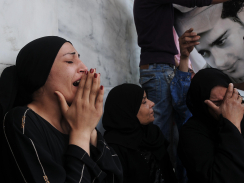
Egypt's military had had a calm two months, resting and waiting. Since early February, when clashes in downtown Cairo left over a dozen activists dead following a massacre — the event was watched without action by soldiers at the Port Said stadium — at a football match, the military had seemingly moved away from antagonizing and killing Egyptians.
That all changed this week when activists, demanding the presidential elections’ laws to be amended and the army chosen presidential committee to be dissolved, marched toward the ministry of defense.
Since Saturday, unknown attackers have clashed with the pro-change activists in the area. And on Wednesday morning, the protesters and the volunteer doctors who have converged on the area to assist the injured, have confirmed the use of live ammunition in the death of at least two confirmed activists.
Making matters worse, and revealing what is likely to be a Supreme Council of the Armed Forces (SCAF) hand in the violence, activists took photos of meals reportedly provided to the “thugs” by the military. While this may not be enough proof to put the SCAF behind the murder of Egyptian citizens, it is enough to show the military is supporting the attackers on the activists.
When I was detained in December during the clashes at the Cabinet building, the military provided myself and a Hungarian citizen also detained with identical meals as being given to the “thugs” this week and detailed by the activists.
What is discouraging about the current situation is the use of violence by the military junta, whether in uniform or in plainclothes. It is becoming ever clearer that the SCAF has no desire to relinquish power to a civilian government, and will likely use the current situation to maintain its position atop the political totem pole in the country.
The past few days of violence has made us forget that in three weeks, Egyptians are supposed to be heading to the ballot box to cast their vote in the first truly democratic election in the country’s history. But let us not forget that in November, days ahead of the beginning of the Parliamentary elections, the military attacked a peaceful sit-in in Tahrir Square, pushing many activists away from the polls and ensuring a conservative Muslim Brotherhood takeover of Parliament.
Today, it appears history is repeating itself with the state-sponsored violence aimed at disrupting the democratic process. Activists online are again lashing out at the SCAF, an oft-repeated response to the numerous violent clashes that Egypt has witnessed in the past 8 months, beginning with the armed forces massacre of 27 people in front of the state television building, or Maspero, in October.
The military does not want to give up power, despite repeated promises to do just that. By enabling violence against largely peaceful protesters, the military’s campaign against democracy is in full swing. The likely result will be a scared population unwilling to elect a moderate candidate.
As Egyptians die once again in the name of change and democracy, the military is using its power irresponsibly. By turning its forces on Egyptians, the military is telling the country that they will not bow to the democratic demands of the 18 days of uprising that ousted the former regime. They are saying to Egyptians that they are in charge and will not succumb to legitimate pressure to leave the country in the hands of the politicians. Democracy is dying at the butt of a gun.
As observers, we must not be blinded by the tear gas, the empty promises from the SCAF leadership who tells us of an “invisible hand” choreography anarchy in the country. Instead we must remain vigilant in revealing to the world, as the activists who put their lives on the line for change and a new Egypt, that the military junta wants power and they want it absolutely.
The January 2011 uprising might have changed the psyche of the Egyptian public, but it has yet to change the manner in which those in power in Egypt attempt to hold onto their power. The murder of Egyptian activists, under the watchful gaze of uniformed soldiers is a warning to all Egyptians that change is not coming.
This week’s violence seems to be part of a plan for the military to continue its stranglehold on the country. In the end, we know who the “invisible hand” is and it is the military and its desire to foment distrust in the democratic process in order for it to complete a military coup that began in February 2011 as former President Hosni Mubarak bid adieu to the country.
That all changed this week when activists, demanding the presidential elections’ laws to be amended and the army chosen presidential committee to be dissolved, marched toward the ministry of defense.
Since Saturday, unknown attackers have clashed with the pro-change activists in the area. And on Wednesday morning, the protesters and the volunteer doctors who have converged on the area to assist the injured, have confirmed the use of live ammunition in the death of at least two confirmed activists.
Making matters worse, and revealing what is likely to be a Supreme Council of the Armed Forces (SCAF) hand in the violence, activists took photos of meals reportedly provided to the “thugs” by the military. While this may not be enough proof to put the SCAF behind the murder of Egyptian citizens, it is enough to show the military is supporting the attackers on the activists.
When I was detained in December during the clashes at the Cabinet building, the military provided myself and a Hungarian citizen also detained with identical meals as being given to the “thugs” this week and detailed by the activists.
What is discouraging about the current situation is the use of violence by the military junta, whether in uniform or in plainclothes. It is becoming ever clearer that the SCAF has no desire to relinquish power to a civilian government, and will likely use the current situation to maintain its position atop the political totem pole in the country.
The past few days of violence has made us forget that in three weeks, Egyptians are supposed to be heading to the ballot box to cast their vote in the first truly democratic election in the country’s history. But let us not forget that in November, days ahead of the beginning of the Parliamentary elections, the military attacked a peaceful sit-in in Tahrir Square, pushing many activists away from the polls and ensuring a conservative Muslim Brotherhood takeover of Parliament.
Today, it appears history is repeating itself with the state-sponsored violence aimed at disrupting the democratic process. Activists online are again lashing out at the SCAF, an oft-repeated response to the numerous violent clashes that Egypt has witnessed in the past 8 months, beginning with the armed forces massacre of 27 people in front of the state television building, or Maspero, in October.
The military does not want to give up power, despite repeated promises to do just that. By enabling violence against largely peaceful protesters, the military’s campaign against democracy is in full swing. The likely result will be a scared population unwilling to elect a moderate candidate.
As Egyptians die once again in the name of change and democracy, the military is using its power irresponsibly. By turning its forces on Egyptians, the military is telling the country that they will not bow to the democratic demands of the 18 days of uprising that ousted the former regime. They are saying to Egyptians that they are in charge and will not succumb to legitimate pressure to leave the country in the hands of the politicians. Democracy is dying at the butt of a gun.
As observers, we must not be blinded by the tear gas, the empty promises from the SCAF leadership who tells us of an “invisible hand” choreography anarchy in the country. Instead we must remain vigilant in revealing to the world, as the activists who put their lives on the line for change and a new Egypt, that the military junta wants power and they want it absolutely.
The January 2011 uprising might have changed the psyche of the Egyptian public, but it has yet to change the manner in which those in power in Egypt attempt to hold onto their power. The murder of Egyptian activists, under the watchful gaze of uniformed soldiers is a warning to all Egyptians that change is not coming.
This week’s violence seems to be part of a plan for the military to continue its stranglehold on the country. In the end, we know who the “invisible hand” is and it is the military and its desire to foment distrust in the democratic process in order for it to complete a military coup that began in February 2011 as former President Hosni Mubarak bid adieu to the country.
AHMADINEJAD'S SUPPORT CRUMBELS IN IRAN RUNOFF
By ALI AKBAR DAREINI Associated Press TEHRAN, Iran May 5, 2012 (AP)
President Mahmoud Ahmadinejad's support in Iran's parliament crumbled as final results released Saturday showed conservative rivals consolidating their hold on the legislative body in a runoff vote.
Iran has touted a robust turnout for Friday's vote as a show of support for the country's religious leadership in its confrontation with the West over the Islamic Republic's controversial nuclear program.
The result is also a new humiliation for Ahmadinejad, whose political decline started last year with his bold but failed challenge of Supreme Leader Ayatollah Ali Khamenei over the choice of intelligence chief.
While usually in agreement with the conservatives on foreign policy and many other issues, he had tried to change the rules of the political game in Iran, where the president and legislature are subordinate to religious figures like Khamenei.
Ahmadinejad's opponents had already won an outright majority in the 290-member legislature in the first round of voting in March. Of 65 seats for grabs in Friday's runoff election, Ahmadinejad's opponents won 41 while the president's supporters got only 13 seats. Independents won 11, according to final results reported Saturday by state media.
The president's supporters had their best showing in the capital Tehran. Ahmadinejad's conservatives critics won 16 seats while his supporters took nine.
Iran's major reformist parties, which oppose both Ahmadinejad and the conservatives, mostly did not field candidates.
AP An Iranian woman casts her ballot for the... View Full Caption The new parliament will begin its sessions in late May. It has no direct control over key foreign and security policy matters like Iran's nuclear program, but it can influence those issues and economic policies as well as the run-up to the election of Ahmadinejad's successor. Ahmadinejad is constitutionally barred from seeking a third consecutive four-year term and must step down in 2013.
The results suggest Ahmadinejad will face a more belligerent parliament in the remaining time of his second four-year term in office that ends August 2013. His allies are likely to be ousted from key posts, and his plan to cut economic subsidies challenged.
No final figures were released, but Iran's media has claimed that the turnout Saturday matched that of the initial round of voting on March 2, when 64 percent of voters reportedly cast ballots.
"Mass turnout in runoff parliamentary elections," declared a front-page headline in the government-run Iran Daily.
Iranian leaders have showcased the high voter turnout as a sign of trust in the clerical-led system and rejection of Western pressure over the nuclear issue. The West suspects Iran is pursuing nuclear weapons and is demanding that Iran stop uranium enrichment. Iran has refused, saying its program is aimed at power generation and cancer treatment.
"The vote is support for the ruling system as it faces the U.S. and its allies over the nuclear program ... The vote also means that tensions will increase between Ahmadinejad and his opponents in the incoming parliament," political analyst Ali Reza Khamesian said.
Khamesian said Ahmadinejad was gradually fading from Iran's political scene but could still stir up conflict with parliament.
"Ahmadinejad is the losing party. So, he will try to create tensions in the hope of getting concessions," he said.
The outgoing parliament and Ahmadinejad are at loggerheads over how quickly to slash food and energy subsidies. The president favors dramatic cuts to boost Iran's ailing economy by reducing the massive drain on the state budget from the subsidies.
The government implemented a first phase of slashing subsidies in December 2010. Gasoline prices quadrupled and bread prices tripled after the cuts came into effect. Prices have also increased in recent months, partly as a result of sanctions over Iran's nuclear program, as well as news that the government is considering ending subsidies altogether.
Parliamentary speaker Ali Larijani, one of Ahmadinejad's opponents, said the parliament won't allow him to quickly end the remaining subsidies because it would cause wild inflation and public dissatisfaction.
The right thing to do instead of hide or Robb planes
Karzai snubs West, backs Russian annexation of CrimeaPublished March 24, 2014FoxNews.com
Facebook176 Twitter328 Gplus11
March 15, 2014: Afghan President Hamid Karzai speaks during his final address to parliament in Kabul, Afghanistan.AP
Afghan President Hamid Karzai, already at odds with the U.S. over a vital security pact, snubbed western leaders once again by joining the likes of Syria and Venezuela in backing Russia's annexation of Crimea.
Karzai's office released a statement over the weekend saying Afghanistan "respects the free will of the people of Crimea to decide about their own future."
ADVERTISEMENT
The statement said "we respect the decision the people of Crimea took through a recent referendum that considers Crimea as part of the Russian Federation."
Karzai weighed in on the Ukraine crisis shortly before President Obama flew overseas for meetings with European partners. The Obama administration and European allies have described the Crimea referendum, and Russia's decision to annex the peninsula, as "illegitimate."
The Afghanistan statement, though, was yet another indication of how far the Karzai administration has drifted away from the U.S. as the Afghanistan war -- or the United States' involvement in it -- draws to a close, despite Washington's past support for his presidency. Karzai, in backing Moscow, was also aligning with actors who, under the Soviet Union, prosecuted a prior decade-long war in his country. The U.S. backed Afghan groups fighting against the Soviet-led forces in that war.
Karzai may now be seeking to court Russia, for its aid and general support, as American forces withdraw from the country.
Karzai, though, so far has refused to sign a security agreement that would provide for a residual force of U.S. troops to stay behind after the final withdrawal.
In his final address to Afghanistan's parliament earlier this month, Karzai told the United States its soldiers can leave at the end of the year because his military, which already protects 93 percent of the country, was ready to take over entirely.
K
The Afghan president has come under heavy pressure to sign the Bilateral Security Agreement, with a council of notables that he himself convened recommending that he sign the pact. The force would train and mentor Afghan troops, and some U.S. Special Forces would also be left behind to hunt down Al Qaeda.
All 10 candidates seeking the presidency in April 5 elections have said they would sign the security agreement. But Karzai himself does not appear to want his legacy to include a commitment to a longer foreign troop presence in his country.
Facing Karzai's refusal, Obama already has asked the Pentagon to draft plans for a complete withdrawal of U.S. troops from Afghanistan by the end of the year.
The Associated Press contributed to this report.
Israel report: Iran directed this month’s rocket attacks on IsraelSpecial to WorldTribune.com
JERUSALEM — Iran has been directing its proxies to attack Israel, a report said.
The Jerusalem Center for Public Affairs asserted that Iran was ordering its Palestinian and Lebanese proxies to attack Israel. In a report, the center cited rocket and improvised explosive device strikes along Israel’s borders with Lebanon and Syria in March 2014.
Israeli military vehicles patrol border with Gaza after another barrage of rockets hit southern Israel. / Getty
“All of these attacks on Israel come in the wake of the green light given by Iran against the backdrop of changing power equations in the broader Middle East,” the report, titled “Iran’s Fortunes Rising in a Middle East Vacuum,” said.
Author Michael Segall, a consultant and retired Israeli military intelligence officer, said Islamic Jihad was directed by Iran to fire some 150 rockets toward Israel from the Gaza Strip in mid-March. Segall said Jihad, with the largest medium- and long-range rocket arsenal in the Gaza Strip, was “completely dependent on Iran for its funding and equipment.”
“Iran views Hizbullah and the Palestinian terror organizations as major components in its national security strategy, part of its long arm,” the report, dated March 19, said. “Iran acts ceaselessly to provide these actors with rockets and the knowledge to manufacture them, along with other weapons. The latest developments, coupled with Iran’s growing realization that it is immune to a Western military attack, could lead it to make even bolder moves by itself and through its proxies.”
The report said the attacks on Israel reflected growing confidence by Teheran that it would not be attacked by either the West or the Jewish state. The turning point was said to have been the P5+1 agreement in November 2013 that preserved Iran’s nuclear and ballistic missile program.
“Iran regards the U.S., and the West in general, as lacking the capacity to use military force to stop its nuclearization, or to curtail Iran’s assertive measures against the Gulf states and in the Middle East generally. Iran sees an opportunity to continue driving the U.S. and the West out of the region,” the report said.
Segall said Hizbullah, after years of restraint, was also directed to intensify attacks on Israel. On March 18, four Israeli soldiers were killed during a patrol on the Golan Heights near the border with Syria.
“At Iran’s behest, Hizbullah has entered the struggle to salvage Iran’s strategic asset, the Assad regime,” the report said. “Despite growing domestic criticism, in part due to scores of Hizbullah casualties on Syrian soil, [Hizbullah secretary-general Hassan] Nasrallah has been carrying out Teheran’s directives.”
In return, Iran has transferred what the report termed advanced weapons to Hizbullah. This included the Russian-origin P-800 cruise missile and unmanned aerial vehicles.
The report envisioned Iran’s reconciliation with the Hamas regime in the Gaza Strip. Hamas leader Khaled Masha’al was preparing to visit Iran in what could restore Teheran’s military and financial aid to Hamas, which supported the Sunni revolt until 2013.
Asia-Pacific, Energy, Global Geopolitics, Global Governance, Headlines, North America, Nuclear Energy - Nuclear Weapons,TerraViva Europe, TerraViva United Nations, United Nations, WorldU.S. Rejected Israeli Demand for Iran Nuclear ConfessionAnalysis by Gareth PorterReprint | | Print | Send by email
WASHINGTON, Mar 31 2014 (IPS) - The Barack Obama administration appears to have rejected a deal-breaking demand by Israel for an Iranian confession to having had a covert nuclear weapons programme as a condition for completing the comprehensive nuclear agreement.
Pro-Israeli commentators have openly criticised the Obama administration for failing to explicitly demand that Iran confess to charges by the International Atomic Energy Agency (IAEA) of a covert nuclear weapons programme.
All the intelligence in question can be traced back to Israel, and investigation of it has shown that the documents and reports that have been most widely publicised betray multiple indications of having been fabricated.
Demanding such a confession would be an obvious deal-breaker, because Iran has consistently denied those past charges and denounced the documents and intelligence reports on which they were based as fraudulent. In fact, the failure of the talks appears to be precisely the Israeli intention in pressing Washington to make that demand.
All the intelligence in question can be traced back to Israel, and investigation of it has shown that the documents and reports that have been most widely publicised betray multiple indications of having been fabricated, as reported by IPS.
A “senior administration official” told reporters after the Nov. 24 Joint Plan of Action was announced that the United States had “made clear” in the negotiations that “the Security Council resolutions must still be addressed…and that Iran must come come into compliance with its obligations under the NPT and its obligations to the IAEA.”
The U.N. Security Council Resolution 1929 of Jun. 9, 2010 says Iran “shall cooperate with the IAEA on all outstanding issues, particularly those which give rise to concerns about the possible military dimensions of the Iranian nuclear programme….”
The term “possible military dimensions” had been used by the IAEA in referring to the claims publicised by the agency over the past six years of covert Iranian nuclear weapons development projects, including an alleged facility at Parchin for testing nuclear weapons designs.
The administration thus seemed to suggest that some kind of Iranian admission to past nuclear weapons work is a condition for a final agreement.
But the Obama administration’s rhetoric on resolving IAEA claims of a nuclear weapons programme appears to be less about forcing Iran to confess than responding to pressures from Israel and its supporters in the United States.
The first explicit indication of Israeli pressure on Obama to demand an Iranian confession as part of any diplomatic settlement came in a September 2012 article by Patrick Clawson and David Makovsky, then both senior staff members of the Washington Institute for Near East Policy (WINEP), whose analysis and recommendations reflect Israeli government policy.
“Given Iran’s past undeclared activities,” Clawson and Makovsky wrote, “a particular concern is that Iran will develop clandestine nuclear facilities. Tehran’s coming clean about the past will therefore be an important determinant of whether it has any hidden capabilities.”
The demand that Iran “come clean” on its alleged nuclear weapons program entered into the Obama administration’s public posture for the first time after consultations with Israel in advance of the October 2013 round of negotiations with Iran.
The new Iran-IAEA agreement on the EBW issue raises the question of whether IAEA Director General Yukiya Amano is now ready to reach a deal with Iran, despite having staked his own reputation on the November 2011 report on intelligence claims of covert Iranian nuclear weapons research coming from Israel. Credit: International Students’ Committee/cc by 3.0
Secretary of State John Kerry declared in Tokyo Oct. 3 that Iran would “have to prove it’s willing to come clean about the nuclear programme”.
That same day, Ambassador James Jeffrey, a senior fellow at WINEP, in testimony before the Senate Foreign Relations Committee, said Iran “must come clean on its nuclear-related military research”.
By the time the negotiations on the joint Plan of Action were completed in November, however, the State Department adopted language on the issue that harkened back to Kerry’s testimony at his Senate confirmation hearings in January 2013. Kerry had said then that “questions surrounding Iran’s nuclear weapons programme” had to be “resolved”.
It quickly became apparent that Israel had wanted the United States to demand not only a pro forma confession by Iran but the details of its alleged work on nuclear weapons. On the very day the agreement was announced, however, Robert Satloff, the executive director of WINEP, expressed his unhappiness that the deal did not include “getting Iran to come clean on all its past clandestine programmes….”
Also on Nov. 24, Mark Dubowitz and Orde Kittrie of the Foundation for the Defense of Democracies, which is well known for expressing Israeli policy on Iran, criticised the Joint Plan of Action in the Wall Street Journal for failing to “make clear reference to Iran revealing its past nuclear weapons research.”
The following day WINEP managing director Michael Singh complained in the Wall Street Journal objected again to the same U.S. failure to demand all the details of Iranian work on nuclear weapons. “Without insight into the full extent of Iran’s clandestine nuclear activities,” Singh wrote, “no amount of monitoring and inspection can provide confidence that Iran lacks a parallel programme beyond the inspectors’ view.”
Along with Kerry’s initial adoption of the “come clean” rhetoric, these sharp criticisms of the U.S. refusal to call explicitly for a confession indicate that the Obama administration had initially went along with Israel’s in calling for Iran to “come clean”, but concluded that such a demand risked a premature breakdown in the talks.
Since the interim agreement, moreover, the State Department has avoided language that would commit it to requiring anything resembling an Iranian confession. In Israel Feb. 22, Undersecretary of State Wendy Sherman, who is the primary negotiator with Iran, said, “What we have said to Iran is that [the 'possible military dimensions' issue] will have to be addressed in some way.”
Sherman suggested for the first time the possibility of a less than complete and clear-cut outcome of the process. The IAEA was “very much focused on working through PMD with Iran,” said Sherman. “And the more Iran can do with the IAEA, which is where this belongs, the more likely we will have successful comprehensive agreement.”
Related IPS Articles
- Resolving Nuclear Arms Claims Hinges on Iran’s Demand for Documents
- Iran Laptop Papers Showed the Wrong Missile Warhead
- Report Ties Dubious Iran Nuclear Docs to Israel
A former U.S. official who had worked on Iran suggested in a recent off-the-record meeting that the “possible military dimensions” issue could not be resolved completely, but that one or more parts could be clarified satisfactorily. The rest could be left for resolution by the IAEA after the comprehensive agreement is signed, the ex-official said.
That possibility arises because Iran and the IAEA agreed in February to work on the “Exploding Bridgewire” (EBW) issue – the claim published by the IAEA that Iran had carried out experiments on high explosives developed for the purpose of detonating a nuclear weapon.
That claim was based on a document that was part of the large collection originally said by anonymous intelligence sources to have come from the laptop computer of a participant in a purported Iranian nuclear weapons research project.
The documents were actually turned over to German intelligence by the Iranian terrorist organisation Mujahedin-E-Khalq, which had close links to Israel’s intelligence agency, Mossad.
Iran provided the IAEA with an account of its actual EBW development programme in 2008. The Iranian account, cited by the agency in its May 2008 report, indicated the rate of explosions in its experiments, which was just one-eighth the rate mentioned by then IAEA deputy director Olli Heinonen in a briefing for member states in 2008.
But instead of acknowledging that fact in its report, the IAEA suggested repeatedly that Iran had acknowledged carrying out the EBW experiments described in the purported document from the secret weapons programme while claiming it was for non-nuclear applications.
The new Iran-IAEA agreement on the EBW issue raises the question of whether IAEA Director General Yukiya Amano is now ready to reach a deal with Iran, despite having staked his own reputation on the November 2011 report on intelligence claims of covert Iranian nuclear weapons research coming from Israel.
Such an agreement might be based on the IAEA’s stating accurately the Iranian explanation for the EBW – and thus implicitly admitting that the agency had distorted the issue in the past. Other issues might be left to be resolved quietly after the negotiations on a comprehensive agreement are completed.
Gareth Porter, an investigative historian and journalist specialising in U.S. national security policy, received the UK-based Gellhorn Prize for journalism for 2011 for articles on the U.S. war in Afghanistan. His new book “Manufactured Crisis: the Untold Story of the Iran Nuclear Scare”, was published Feb. 14.


